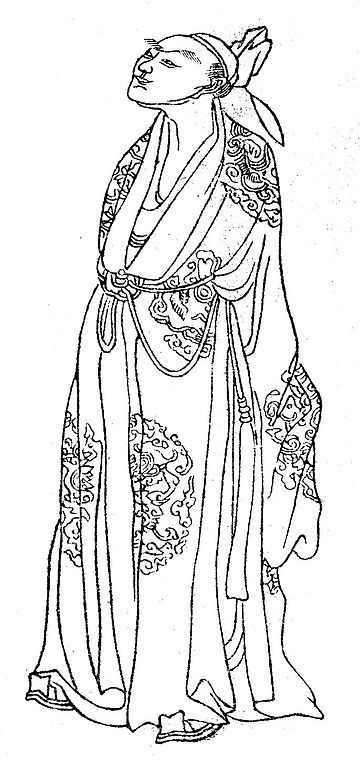Liu Yuxi

Liu Yuxi (Wade-Giles: Liu Yü-hsi; simplified Chinese: 刘禹锡; traditional Chinese: 劉禹錫; pinyin: Liú Yǔxī) (772–842) was a Chinese poet, philosopher, and essayist, active during the Tang Dynasty.
Liu Yuxi’s wide interests are reflected in the subject matter of his poetry: the economic and social customs of ordinary people and their problems, folk music and folklore, friendship, feasting and drinking, and historical themes and nostalgia for the past. Some of the best known are notable for their simple, 'folksong' style. Just over 700 of his poems still exist, four of them are included in the classic Qing Dynasty anthology Three Hundred Tang Poems, which was first published in the 18th-century.
He excelled in the shorter, more complex forms of Chinese poetry. In technical terms, he preferred using heptasyllabics (seven character lines) to pentasyllabics (five character lines) (123 to 47 examples in Wu Zaiqing's edition of selected works), regulated rather than unregulated (145 to 22 examples in Wu), and short forms (8-line lüshi and 4-line jueju) to longer poems (142 to 25 examples in Wu).
He was a close friend and colleague of three great contemporary poets: Liu Zongyuan, Han Yu and Bai Juyi. Bai was born in the same year as Liu Yuxi and referred to "Liu and Po, those two mad old men" in at least one poem dedicated to Liu.
